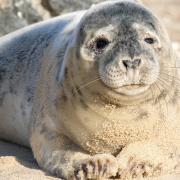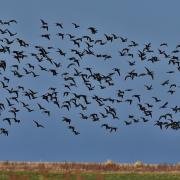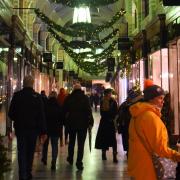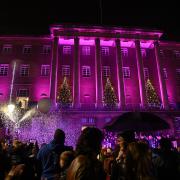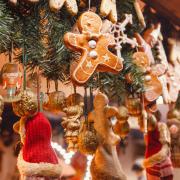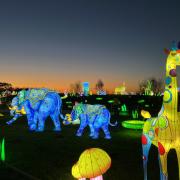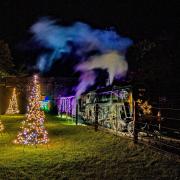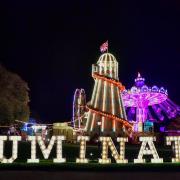There’s a fizzing in the sky on this October night, as though the distant stars were Catherine-wheeling in the heavens. The world is on the move. Summer’s songs have faded south and winter’s cast is coming. One of them, the redwing – a handsome, cream-browed thrush, with embers smouldering beneath its wings – is fizzing in the sky above my house tonight. They come, the Nordic hordes. They come.
The world is always on the move, of course. All change, all death, all birth, all violence. In nature there is never stillness, nor isolation. Only interaction, sharing, stealing, flow. Genes flow down generations through the miracles of pollen, passion, parthenogenesis. Water bleeds through rivers, spiracles, stomata, arteries and clouds. Carbon is strung between us all in soils and seas and seeds and foods and fossil fuels. Nitrogen – made accessible by bacteria and plants – cycles through us in ammonia, in amino acids and in proteins. We all are porous beings, of a porous world.

We humans, though, especially in the Global North, we seem to have forgotten this most basic contract; this reciprocity of life on Earth. The giving and the taking and the giving back. We tell ourselves we are the chosen; the uniquely favoured children of the world; released from ties of reciprocity which bind all living, and non-living, beings on our planet, in our universe. We are exceptionalists.
At this point in your article, dear reader, I have taken a short break for lunch (a cabbage and green lentil salad, dressed in olive oil and lemon juice, since you so kindly ask). While making and consuming it, I listened to an interesting radio programme on medicines in the natural world, in which a presenter commented, of Sumatran orangutans, ‘how human-like they are.’
I rolled my eyes, but simultaneously felt smug. Here was clear evidence of the very human exceptionalism about which, only moments earlier, I had been writing. QED, I thought. I patted myself on the back (easier, as it happens for an orangutan than for a human). Orangutans are not human-like, you see. No, no, dear reader. It is we humans who are orangutan-like.
Looked at through the lens of basic biological building blocks, we are clearly like the rest of nature, in countless ways. We share 97% of our DNA with orangutans; leaving just 3% for our mobile phones, for space travel, for religious texts, for Super Mario, for AK47s and all the other things which do – legitimately – render us exceptional. But the rest comes from – is exactly like – the rest of the natural world. Not the other way around. Even the 3% of DNA we do not share with orangutans (barely more than 1% for chimpanzees) comes entirely from the natural world.

Why this philosophical deep-dive into the nature of humanity? It’s because – to save nature, and ultimately save ourselves – it’s essential we re-find our right relationship with the natural world: as part of nature; a child of nature; a prodigious, gifted child, inarguably, but all the same her child.
I’m not exaggerating when I say that we need a right relationship with nature to save ourselves. This is not airy-fairy green talk. In 2009 a group of scientists at the Stockholm Resilience Centre established nine planetary boundaries within which our society must maintain its activities for us to survive and prosper in future generations. In 2023, the first systematic assessment of these nine planetary boundaries was completed. And it found that we have already crossed six of them (several of them by a large margin). In the case of the Biosphere Integrity boundary, scientists found that we have significantly degraded both the genetic wealth of the planet and the functioning of its ecosystems. These are the ecosystems which support us, on which our very lives depend.
Put down your magazine, on this October night, and go outside. Listen to the vastness of our planet and the universe. Listen for the fizzing of a redwing in the heavens. It will tell you that birds are on the move, fleeing the brutal winter of the taiga forest where they bred. It will tell you that nature is all around us, in all its majesty, waiting to be acknowledged and admired. It will tell you that almost all our genes are shared with other living things, that we too are part of nature. And it will tell you that it is not too late for a revolution in our relationship with nature, in which we return to the timeless understanding of our forebears, and we restore the wild to which we too belong.
Not yet too late. Not quite.




